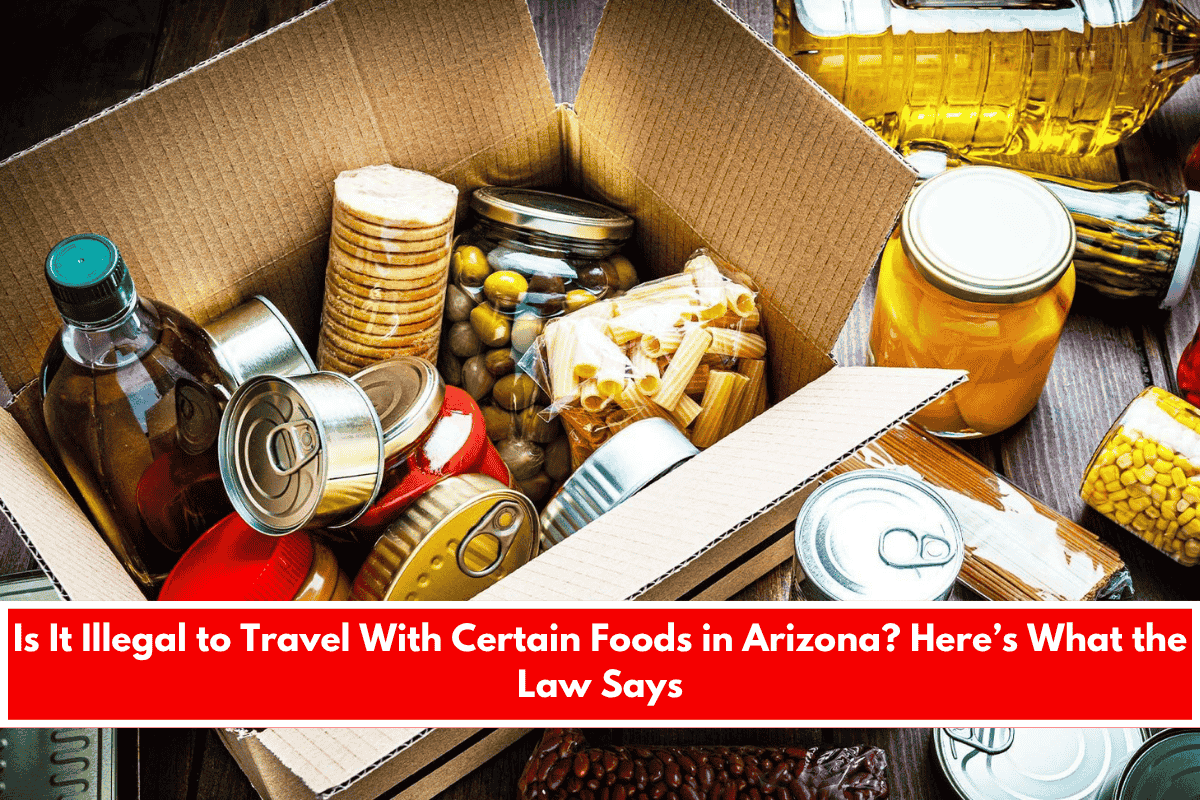Traveling with food in Arizona is subject to several state and federal laws designed to protect public health, agriculture, and consumers. Below is a comprehensive overview of what foods are restricted or regulated when traveling into or within Arizona.
1. Foods Prohibited or Restricted at the Arizona Border
Arizona enforces strict regulations on the importation of certain foods, especially at its borders:
- Fresh Fruits and Vegetables: Many fresh fruits and vegetables are restricted or require inspection to prevent the introduction of pests and diseases. This is especially enforced at the border with Mexico.
- Plants, Seeds, and Soil: These items are often prohibited or require permits due to risks of invasive species and plant diseases.
- Raw or Unpasteurized Dairy: While raw milk produced and sold within Arizona is legal, it is illegal to bring raw milk from out of state into Arizona.
- Meat and Animal Products: Some fresh meats, animal by-products, and certain cheeses may be restricted to prevent disease transmission.
- Homemade or Unlabeled Foods: Foods not in their original packaging or lacking proper labeling may be confiscated at border checkpoints.
2. Foods Illegal or Restricted for Sale and Consumption
Raw Milk and Dairy Products
- Legal if produced and bottled in Arizona: Raw milk and certain raw milk products can be sold if produced and bottled within the state and meet specific health standards.
- Illegal to import: It is illegal to bring raw milk or participate in “cowsharing” programs from out of state into Arizona.
Cottage Foods
- Permitted: Baked goods, jams, and other foods that do not require refrigeration can be sold under Arizona’s Cottage Food Program.
- Prohibited: Alcohol, raw milk, fish, shellfish, marijuana-infused products, most meats, and poultry are not allowed under the Cottage Food Program, except for some exceptions outlined by law.
3. Banned Ingredients and Processed Foods
School Food Laws
- Ultra-Processed Foods Banned in Schools: As of 2025, Arizona law bans the sale and service of foods containing certain additives and dyes in public schools. These include potassium bromate, propylparaben, titanium dioxide, brominated vegetable oil, and several synthetic food dyes (Yellow 5, Yellow 6, Blue 1, Blue 2, Green 3, Red 3, Red 40).
- Scope: This ban applies only to foods served or sold in public schools, not to foods brought from home or purchased elsewhere.
4. Federal and State Enforcement
- U.S. Customs and Border Protection (CBP): Prohibits the entry of meats, fresh fruits and vegetables, plants, seeds, and certain animal products from other countries into Arizona and the rest of the U.S. All agricultural items must be declared at the border.
- Arizona Department of Agriculture: Conducts inspections and enforces state and federal quarantine regulations to prevent the spread of pests and diseases.
5. Summary Table: Food Restrictions for Travelers in Arizona
| Food/Item | Legal to Bring? | Notes/Restrictions |
|---|---|---|
| Fresh fruits & vegetables | Often restricted | Inspection required, especially at border |
| Raw milk (from out of state) | No | Illegal to import; only legal if produced in Arizona |
| Meat & animal products | Restricted | Subject to inspection; some types prohibited |
| Cottage foods (baked goods, jams) | Yes (with rules) | Must be pre-packaged and labeled; no raw milk/meat |
| Ultra-processed foods (in schools) | No (schools only) | 11 banned ingredients in public schools |
| Plants, seeds, soil | Restricted | Permits/inspections required |
Key Takeaways
- It is illegal to bring certain foods—especially raw milk, fresh produce, and some animal products—into Arizona without meeting state and federal requirements.
- Arizona has special bans on ultra-processed foods in public schools, but not for general travelers.
- Always declare agricultural items at the border and check current Arizona Department of Agriculture and U.S. CBP guidelines before traveling with food.
- Violating these laws can result in confiscation, fines, or other penalties.
Sources:
- https://agriculture.az.gov/about-us/divisions
- https://www.cbp.gov/travel/international-visitors/agricultural-items
- https://kwcdcountry.com/legal-raw-milk-in-arizona/
- https://law.justia.com/codes/arizona/title-3/section-3-606/











Leave a Reply